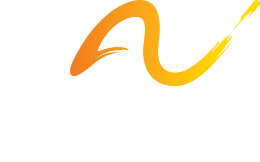Public Policy Goals for the 117th Congress
2021 — 2022
People with intellectual and developmental disabilities (IDD) want to live, learn, work, pay taxes, and be productive and fully included in their communities. Federal public policy is critical to achieving this vision.
The Arc partners with AAIDD, ANCOR, ASA, ASAN, Easterseals, NACDD, TASH, and UCP to create this public policy agenda. We work together to shape, expand, and protect a strong federal role that provides vital benefits, services, and supports and assures civil rights for our constituency.
Key Federal Policy Issues for People With I/DD
All branches of the federal government play critical roles in affirming, securing, and achieving the vision of inclusion and ensuring that the civil rights of persons with disabilities are realized. Featured goals are below. A complete list of topics can be found in our full Public Policy Agenda.
Civil Rights
Civil rights must be preserved through vigilant enforcement of laws and regulations as well as strong opposition to efforts that limit the rights of people with IDD.
Community-Based Long Term Supports & Services
These must be widely accessible, consumer controlled, and provided in the community without the requirement that people with IDD impoverish themselves in order to obtain assistance with activities of daily living, such as getting dressed, taking medication, and preparing meals.
Direct Support Professionals
These professionals must be well trained and fairly and adequately compensated to provide the necessary supports and services for people with IDD where they work and live.
Education
The education system must help people with IDD to achieve their full potential and independence by having high expectations, integrated instruction by certified and effective teachers, inclusive classrooms, appropriate assessments, and only using positive behavioral supports.
Emergency Management
The needs of people with disabilities, their families, and the direct support workforce must be considered as a priority in planning for and responding to natural, public health, and human-made disasters and emergencies.
Employment, Training, and Wages
Employment programs must be expanded to provide more job development, placement, and coaching, skills training, and other services necessary to help find and maintain competitive, integrated employment for people with IDD.
As we look to the future of disability rights, The Arc is excited to meet this question head on with our new Strategic Framework for the Future of The Arc. This framework is intended to be a guiding light for our work across the local, state, and national levels. It is the result of an exhaustive, two-year process—culminating in the middle of a global pandemic and human rights reckoning that will shape our advocacy for years to come.
Now more than ever, The Arc must do its part to strategically build the disability rights movement into a more diverse and powerful force for change. We are proud to present our Strategic Framework for the Future of The Arc, which will guide us along this journey.
Strategic Framework for the Future of The Arc
Letting Data Tell the Story: National Stakeholder Survey Results
How was this new framework created? To gather input, we engaged in a two-year participatory process to seek input from a variety of constituents. To understand how we arrived at our new Strategic Framework for the Future of The Arc, we want to share a summary of the insights gained from our stakeholder survey.
Chapters of The Arc can dig deeper into survey results on the Chapter Portal.
Looking for 2010 – 2019 Strategic Framework?
You can find our 2010 – 2019 Strategic Framework, along with annual reports and progress documents, on our financials and reporting page.













